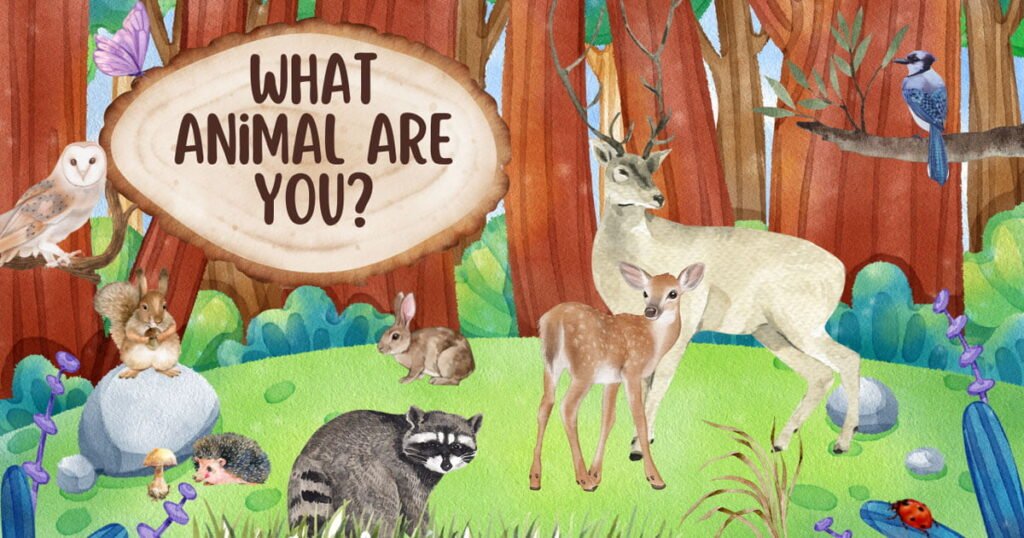The Personality Test for Kids is an accurate tool to assess children’s individual characteristics and traits. This test provides valuable insights into a child’s personality, helping parents and educators understand their strengths and weaknesses, and tailor strategies to support their development.
Understanding a child’s personality is crucial for their overall growth and well-being. The Personality Test for Kids evaluates various aspects such as behavior, emotions, communication style, and learning preferences. By gaining insights into a child’s unique personality, parents and teachers can create an environment that nurtures their strengths and helps them overcome any challenges they may face.
This test also assists in identifying areas of improvement, enabling parents and educators to devise targeted interventions and interventions to enhance a child’s overall personality development. Ultimately, the Personality Test for Kids serves as a valuable tool for understanding and supporting children’s growth, allowing them to reach their full potential.
Why Personality Tests Are Important For Children
Personality tests can provide valuable insights into a child’s unique traits and characteristics. Assessing these qualities in children is important as it helps to understand their strengths and weaknesses. By identifying areas for growth and development, parents and educators can create tailored strategies to support a child’s overall development.
Personality tests offer a comprehensive analysis of a child’s personality, including their emotional intelligence, social skills, and learning preferences. These assessments help parents and teachers gain a better understanding of how a child thinks, feels, and processes information. This knowledge can be used to create a nurturing environment that fosters the child’s individuality and enables them to reach their full potential.
Moreover, personality tests for kids can also aid in the early detection of certain behavioral or emotional issues. By recognizing potential challenges at an early stage, parents can seek appropriate interventions and support for their child’s development.
Overall, personality tests are an effective tool to evaluate and nurture a child’s unique qualities. Understanding a child’s personality can guide parents and educators in providing the best possible support to help them succeed academically, emotionally, and socially.
Different Types Of Personality Tests For Kids
There are different types of personality tests available for kids to help them understand themselves better. One popular assessment is the Myers-Briggs Type Indicator (MBTI), which is often adapted for children. This test allows kids to discover their preferences and strengths across four key dimensions: extraversion/introversion, sensing/intuition, thinking/feeling, and judging/perceiving. The results provide insight into their personality type and how they interact with the world.
Another assessment specifically designed for children is the StrengthsExplorer test. This tool focuses on identifying a child\’s natural talents and strengths. By understanding and developing these strengths, kids can boost their confidence and find activities and areas of interest that align with their unique abilities.
Personality tests for kids can be valuable tools for self-awareness and personal growth. They can help children recognize their strengths, embrace their differences, and make informed choices about their hobbies, education, and future career paths.
The Benefits Of Personality Tests For Children
Personality tests can be a valuable tool in helping children enhance their self-awareness and self-acceptance. By gaining insight into their own unique strengths, preferences, and characteristics, children can develop a stronger sense of identity and confidence. Moreover, these tests can support career exploration and decision-making. By identifying their interests and aptitudes, children can begin to consider potential career paths that align with their individual traits.
Furthermore, personality tests can also improve communication and relationships with others. Understanding their own communication style, as well as those of others, can help children navigate interpersonal dynamics and foster healthier connections. Whether used in educational settings, counseling sessions, or simply as a fun activity, personality tests provide children with valuable insights and tools for personal growth.
How To Choose The Right Personality Test For Your Child
Choosing the right personality test for your child requires careful consideration of age appropriateness and readability. It is essential to consult with professionals or educators who have expertise in child development and psychometrics. Their guidance can help you identify tests that are valid and reliable for assessing different aspects of your child’s personality.
In addition to seeking professional advice, exploring online resources and reviews can provide valuable insights. Look for websites and platforms that offer detailed information about various personality tests designed specifically for children. Reading reviews and testimonials from other parents can give you a better understanding of the effectiveness and appropriateness of different tests.
Administering And Interpreting Personality Test Results For Children
Administering and interpreting personality test results for children requires a thorough understanding of the scoring system and interpretation guidelines. It is important to provide a safe and supportive environment for discussing the results with children, respecting their individual differences and avoiding stereotypes. By valuing each child’s unique personality, you can help guide them towards self-discovery and growth.
Incorporating Personality Test Findings Into Parenting And Education
Understanding a child’s personality can significantly impact parenting and education. By incorporating the findings of a personality test, parents can tailor their strategies to match their child’s unique traits. This allows for personalized approaches that cater to the child’s needs, strengths, and weaknesses. It also helps in creating a supportive environment that encourages their growth and development. Similarly, in schools and classrooms, educators can utilize personality test results to personalize learning approaches.
By understanding a student’s individual preferences, strengths, and learning style, teachers can provide targeted and effective instruction. This approach ensures that each student receives the support and guidance they need to thrive academically and emotionally. Investing time and effort into incorporating personality test findings can lead to more successful and fulfilling parenting and education experiences.
Potential Challenges And Limitations Of Personality Tests For Kids
Potential challenges and limitations of personality tests for kids:
The influence of external factors on test results:
It is important to acknowledge that a child’s personality is not solely determined by a test. External factors such as the child’s environment, upbringing, and experiences can significantly impact their behavior and responses during a personality test. These factors may skew the results and lead to an inaccurate assessment.
The potential for misinterpretation or misuse:
Personality tests for kids should be administered and interpreted by trained professionals who understand the complexities of child development. Misinterpretation or misuse of the test results can lead to incorrect labeling or stigmatization of the child. It is crucial to use these tests with caution and consider multiple factors when assessing a child’s personality.
Balancing the use of personality tests with other assessment tools:
Personality tests should not be the sole basis for evaluating a child’s strengths and weaknesses. They should be combined with other assessment tools, such as observation, interviews, and feedback from parents and teachers, to gain a comprehensive understanding of the child\’s personality. This balanced approach helps in obtaining a more accurate picture of a child’s true abilities and traits.
Resources For Further Exploration And Implementation
Discover a range of helpful resources to explore and implement personality tests for kids. These tools provide valuable insights and practical strategies to understand and nurture children’s unique personalities.
In order to further explore and implement personality tests for kids, there are various resources available such as books, websites, and apps. These resources offer a wide range of options for parents and educators to help children understand and develop their unique personalities. Books on personality tests for kids provide comprehensive information and guidance on the subject. They offer interactive activities, quizzes, and exercises to help children discover their strengths and weaknesses.
Some popular books include Discovering Me: A Kid’s Guide to Discovering Their Own Personality Traits and The Personality Compass: A Guide to Understanding Your Child’s Personality Type. Websites dedicated to personality tests for kids offer online assessments and interactive tools that are designed specifically for children. These websites provide personalized results and recommendations for improving self-awareness and personal growth.
Some notable websites include Kidzmet and 16Personalities (Kids Version). Apps for personality tests for kids are another useful resource. These apps provide an engaging and interactive platform for children to explore their personalities. With features like quizzes, games, and personalized reports, apps like PersonalityMatch for Kids and My Personality Test make the process fun and informative. In addition to these resources, there are also training opportunities available for parents and educators who wish to delve deeper into the field of personality testing for kids.
Frequently Asked Questions For Personality Test For Kids
Is There A Personality Test For Children?
Yes, there are personality tests specifically designed for children. These tests help understand a child\’s unique traits, strengths, and areas where they may need support.
Is There A Myers-briggs For Kids?
Yes, there is a Myers-Briggs for kids. It is called the Myers-Briggs Type Indicator for Children (MBTI-C). It helps identify personality traits in children and provides insights into their strengths and preferences.
What Are The 4 Types Of Personalities For Children?
The 4 types of personalities for children are extroverted, introverted, easygoing, and intense.
What Is The Big Five Personality Test For Children?
The Big Five personality test for children is a tool used to assess a child’s personality traits. It measures five key dimensions: openness, conscientiousness, extraversion, agreeableness, and neuroticism. It helps parents and educators better understand a child’s behavior and tailor their approach to their unique personality.
Conclusion
In sum, a personality test for kids can be a valuable tool for parents and educators to better understand and support their children’s development. By gaining insights into their communication style, learning preferences, and emotional needs, we can create a nurturing environment that fosters their growth and happiness.
So, let’s empower our little ones with self-awareness and help them navigate the world with confidence.



